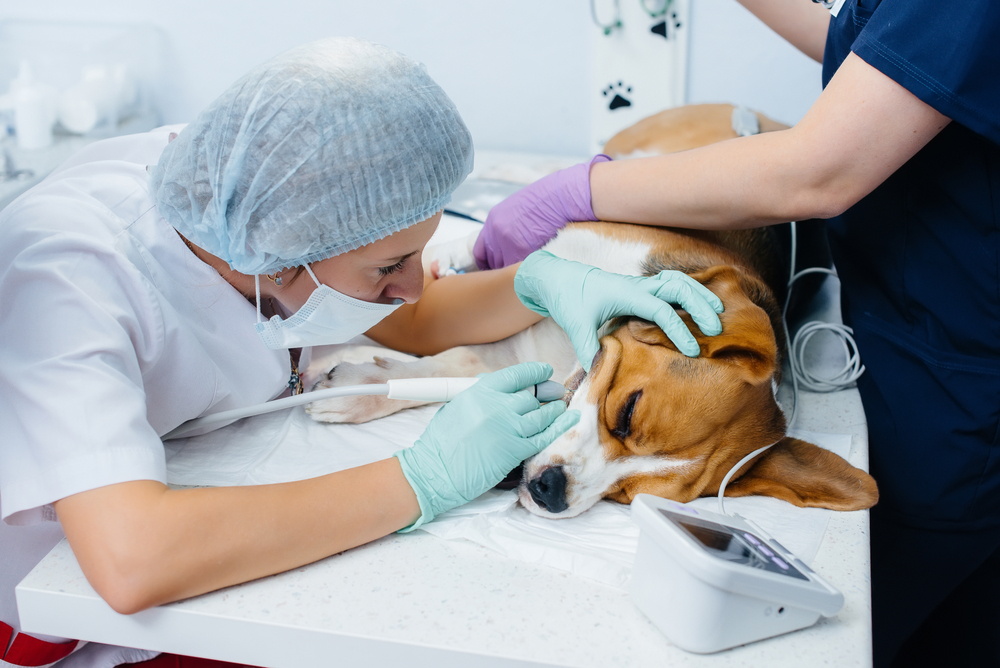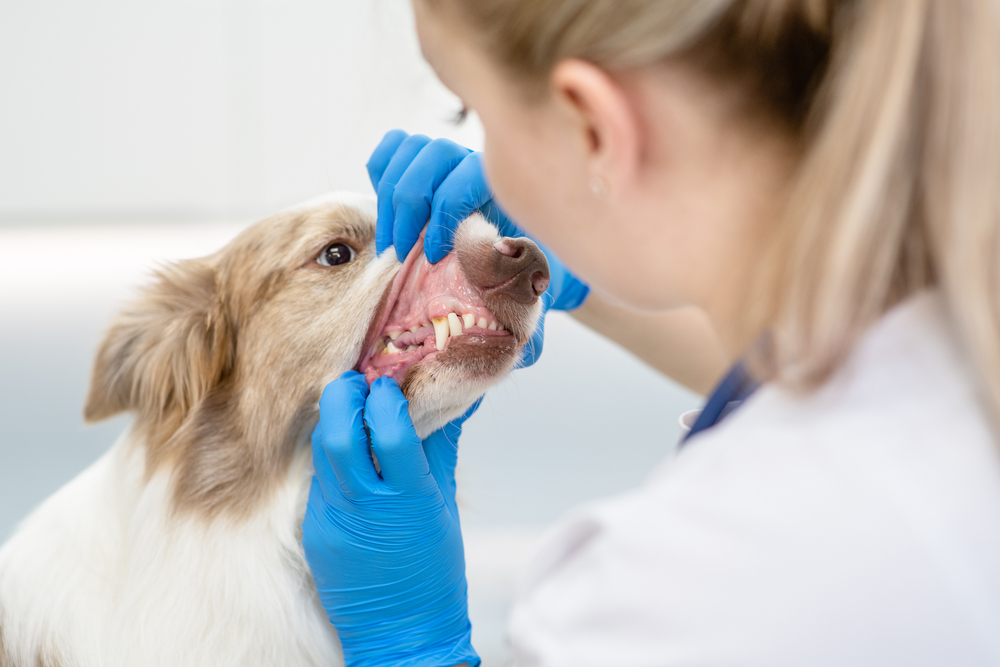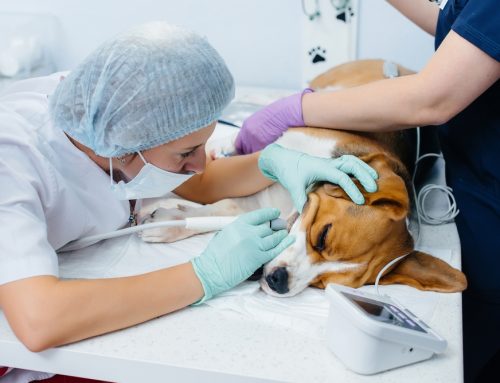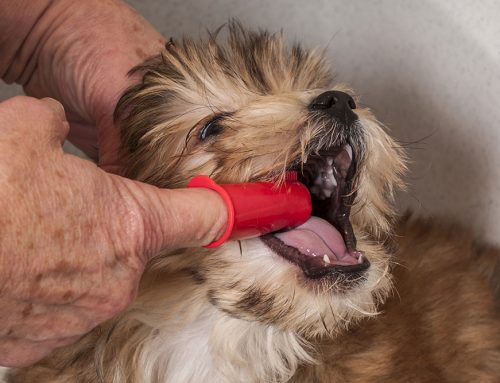When Routine Isn’t Enough: Advanced Dental Conditions That Need a Veterinary Dental Specialist
Dental disease is one of the most common—and painful—conditions pets experience. While many dental issues can be managed by your primary veterinarian, others require specialized care, advanced imaging, and surgical expertise. That’s where we come in.
At North Bay Veterinary Dentistry in Petaluma, California, our board-certified veterinary dentists provide comprehensive treatment for serious oral and maxillofacial conditions. Our focus is always on improving your pet’s quality of life through compassionate, expert care.
When Should Your Pet See a Dental Specialist?
While routine cleanings and extractions are common in general practice, there are times when a referral is the best next step. A veterinary dental specialist is trained to diagnose and treat:
- Oral tumors or unexplained growths
- Complex malocclusions or bite issues
- Fractured or discolored teeth
- Chronic pain or inflammation like stomatitis
- Severe periodontal disease
- Facial trauma or jaw fractures
- Issues in high-risk patients (e.g., brachycephalic or toy breeds)
- Need for advanced diagnostics like x-rays and CT.
Early diagnosis and treatment can help preserve comfort, function, and longevity.
Fractured or Broken Teeth
Dogs that chew hard toys or bones may develop tooth fractures—especially large breed dogs or those that play aggressively. If the fracture exposes the pulp, it causes pain and infection.
Treatment options include:
- Root canal therapy
- Vital pulpotomy for recent or young fractures
- Crowns for working dogs or active pets
- Surgical extraction when the tooth cannot be saved
Learn more about Diagnosis and Treatment of Fractured Teeth, and read about Potential Dangers of Popular Dog Chews for risks that can lead to dental fractures.
Malocclusion (Misaligned Teeth or Jaw)
A misaligned bite can cause soft tissue trauma, pain, and difficulty chewing. Malocclusions are especially common in brachycephalic breeds and toy breeds.
Common treatments include:
- Interceptive extractions
- Crown amputations with vital pulp therapy
- Orthodontic appliances like inclined planes or active force devices
- Referral for more complex correction
Learn more at ABCs of veterinary dentistry: M is for malposition and malocclusion.
Advanced Periodontal Disease
Periodontal disease causes bone loss, loose teeth, and chronic oral pain. Left untreated, it may lead to systemic infection.
Specialist treatment includes:
- Subgingival root planing
- Periodontal flap surgery
- Guided tissue regeneration
- Local antibiotics (perioceutics)
Chronic Oral Inflammation: Stomatitis and More
Feline stomatitis and canine immune-mediated gingivitis can lead to severe, unrelenting pain. These cases require long-term management.
Treatment may include:
- Full-mouth or near full-mouth extractions
- Multimodal pain control
- Close monitoring for improvement
See Oral inflammatory and ulcerative disease in small animals for more.
Oral Tumors
Tumors can be benign or malignant and often go unnoticed until advanced. Signs may include swelling, bleeding, bad breath, or facial asymmetry.
Our care includes:
- Advanced imaging (CT scans)
- Surgical excision
- Collaboration with oncology for radiation or chemotherapy
Visit Oral Tumors of Small Animals and Feline Oral Cavity Tumors – Cornell Feline Health Center to learn more.
Jaw Fractures and Complex Oral Surgery
These injuries require careful stabilization to preserve comfort and function.
We offer:
- Fracture repair and stabilization
- Oronasal fistula repair
- Removal of gingival hyperplasia, polyps, or cysts
For more, visit Gingival Enlargement – Cornell.
Developmental Abnormalities in the Mouth and Teeth
Developmental dental conditions—such as cleft palate, unerupted teeth, and missing or extra teeth—can significantly affect your pet’s comfort, ability to eat, and long-term oral health. Left unaddressed, these issues may lead to pain, infection, or malocclusion (misaligned bite).
Common Conditions Include:
- Cleft Palate – An opening in the roof of the mouth that can cause difficulty nursing, chronic nasal discharge, and an increased risk of aspiration pneumonia.
Learn more about cleft palate in pets. - Unerupted or Impacted Teeth – Teeth that fail to break through the gums can form cysts or become infected if not identified and treated early.
- Supernumerary (Extra) or Missing Teeth – These abnormalities can disrupt the normal bite pattern and lead to crowding or gaps, increasing the risk of periodontal disease.
Specialist evaluation is often needed to determine the best course of action, whether that’s monitoring, extraction, or surgical correction.
For an in-depth overview, see this guide to developmental abnormalities of the mouth and dentition in small animals.
Dental Concerns in High-Risk Breeds
Toy Breeds
Chihuahuas, Yorkies, and other toy breeds often retain baby teeth, leading to crowding and decay. Read more at The trouble with toy teeth – AKC and Small teeth but big dental challenges.
Brachycephalic Dogs
French Bulldogs, Shih Tzus, and Pugs are prone to overcrowding, malocclusion, and Brachycephalic Obstructive Airway Syndrome (BOAS) – Cornell Vet.
They also require special anesthetic care. Learn more at Anesthesia and Dental Cleaning for Pets – AAHA.

Pain Management Is Built into Every Treatment Plan
Your pet’s comfort is never optional—it’s essential. At North Bay Veterinary Dentistry, pain management is a fundamental part of every care plan we design. We take a multimodal approach, combining medications and techniques tailored to your pet’s specific condition, age, and overall health status.
This is especially critical during:
- Periodontal therapy
- Oral surgeries, including extractions or tumor removal
- Treatment for senior pets or those with complex medical conditions
We utilize the latest pain control protocols, and apply best practices in multimodal analgesia for periodontal procedures to ensure your pet remains as comfortable and stress-free as possible—before, during, and after treatment.
We’re Here When Dental Care Gets Complicated
When your pet is in pain, not eating well, or has been referred for advanced dental treatment, our team is here to help. At North Bay Veterinary Dentistry, we combine experience, compassion, and precision to give your pet the care they deserve.
Contact North Bay Veterinary Dentistry to schedule a consultation or learn more.






Leave A Comment